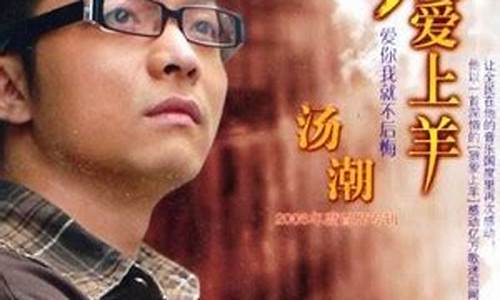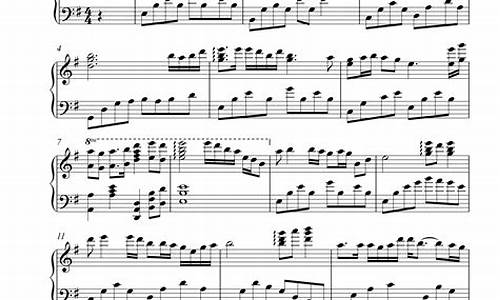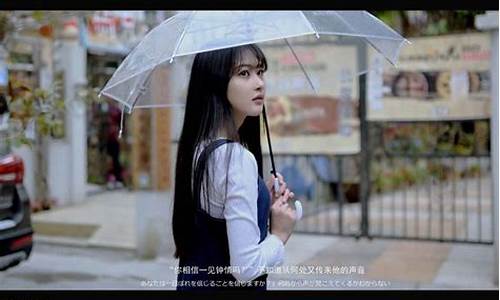1.get changed是什么意思?
2.英语文化阅读:the only surviving calligraph
3.madeinchina怎么放音乐
4.China's和Chinese的区别

Amy,
I heard that you he to come to China to learn, I am very hy. welcome to China!
The new semester begins in September, this is China's summer. You can come to China in Beijing, just like Chicago's weather, Beijing has a different year of four seasons.?
In the summer, winter may be very cold, but don't worry that all the spring in Beijing has a built-in heating system, which will warmly warm in the room in the room.?
There is another good thing in Beijing, you can find almost any food here, but talk about China, of course, the best choice is true Chinese food. I bet you understand the name of the Beijing duck, let us go when you are here.
get changed是什么意思?
As Chinese traditional qipao left in a modern life. Due to the qipao has distinct characteristics, which has high value. Strong ethnic characteristics. Nationalism reflected in the national spirit, is the national consciousness, national quality in the deep structure of the cultural connotation. With extremely strong national dress is full of colour, clothing, han culture, is the crystallization of the national costume culture, is the present western blends. From the image on the western dress know Chinese. It as a representative of Oriental female image, called the excellent product, not too! Today, the Chinese dress, the color, the material, the act the role ofing, its connotation and its flor is for thousands of years, the Chinese dress quintessence of traditional idea, is the last. Chinese people prefer red. Seems indrawn disposition and fervent color, contradictions, but not in a complementary and full. And soft and fierce, namely originally the confrontation between. However, no, not a static, No, don't tell. Therefore, the Chinese dress choose red and the other is gorgeous color, but a strong ethnic characteristics. Qipao decorations, flowers, set the margin of the essence, the originality, clothing and other traditional costume not eared. Disc is spent old "China" from a primitive society, the neolithic already eared knot, is a kind of folk crafts. Delay spread, it is condensed the ancestors' wisdom and creative potential. Disc is spent by Chinese knot craft means, to prepare for the theme, in the nature of a small area of chipau buckle, seiko reengineering. This is the Chinese understanding, this is China's ethnic arts, this is the essence of Chinese nation. The pen that make the finishing point to ear in China manufacturing garment, is China's national style. Jin, satin, crease, silk is China's production of silk fabrics, in these silk knitting, mostly are the symbol of good luck. The materials, mainly from the dress material of the domestic production of choice, therefore, is not finished garments picturesque traditional culture, but also reflects the depth of the national spirit.
Modern cheongsam, waist, openings, compound with popular trend, the fusion feature of western fashion, both to need, and activity for utility.
Modern has carved out with hey and complicated, trend "contracted". In order to adapt to the needs of modern life, it is the aesthetic result.
Of course, it also has its drawbacks: qipao is long, to sit and walk without big handicap, but extremely suitable work bend.
Modern curve, the proportion of men to human cheongsam swagger, for human body is not beautiful person, to oid short.
Qipao openings, by short (21) (60 cm long, though objective cm) for the convenience of activities, but only to meet certain environment, for larger movement and a wider range of activities, arently doesn't fit.
So, today, PuJiMian. Only after improvement, make its weakness, only for the feasibility and variable limitations may make cheongsam bloom, strengthen mental vigor, towards a new era.
英语文化阅读:the only surviving calligraph
发生变化了,变了, 换零钱。
get changed 的相关例句
1. And Itooklittletime to take a bathandgetchanged.
我还抽了点时间洗了个澡,换了套衣服.
2. Katherine: ButthisisChina, go and getchanged.You are notwearing a toga.
凯思莲: 但这儿是中国, 去换掉吧,你不该穿古罗马袍子.
3. Igetchangedandjoin the otherExtras and we headoff to the nailsalon.
我换了上去,并与另一些临时演员一起,前往足疗店.
4. You'llhe to fight through a lot of opposition to get the ruleschanged.
你们必须力排众议,以求变法.
5. Iintervened on herbehalf to try and get the decisionchanged.
我为她力争以求改变决定.
6. Managementchangedandwedidnotgetalong.
经理换人,而我们又处不来.
7. Iwouldlike to get my oilchanged.
我想把机油换一换.
8. You'llfightthrough a lot of opposition to get the ruleschanged.
你得想方设法说服反对意见才能使规章制度得到修改.
9. Youcanget your moneychanged at the cashier's Desk.
您可以去收款处兑换钱.
10. Pushtechnologyhaschanged the way to getinformationandprovideinformation.
推送技术改变了信息的获取方式,同时也改变着信息的提供方式.
madeinchina怎么放音乐
"They are as important in Chinese literary history as Shakespeare is to people in Britain," says historian Yuan Haiwang, author of This Is China: The First 5,000 Years.
"I remember when my son was only a baby held in my arms, I began to teach him some of the poems, like every other parent does, even though of course he couldn't remember all of them. But that's what the Chinese do."
As a Chinese person living in America, far from home, Yuan particularly likes one poem by Li Bai, about the moon:
Moonlight in front of my bed
I took it for frost on the ground
I lift my head, gaze at the mountain moon
Lower it, and think of home.
"The moon in China has a special meaning. And when it's full, that represents the fullness and reunification of the family," says Yuan. "So that poem struck the deep core of my heart whenever I miss my family."
The moon also symbolises poetry and dreams, so it's fitting that it plays a role in Li Bai's death - the story is that he drowned in a river when he tried to embrace the moon's reflection.
"He was drunk, presumably," says translator Burton Watson. "He was drunk a good deal of the time."
Portraits of Li Bai often show him in a long white gown, raising his wine glass to the moon.
Drunkenness didn't he negative connotations for an 8th Century poet - it was the route to divine inspiration. Li Bai and Du Fu were both hey drinkers, even though in other ways their lives were very different.
Li Bai was a huge celebrity, showered with honours because of his genius. Du Fu, on the other hand, aspired to a career as a civil servant, but he failed the exam and was too prickly to network his way into a good post.
Then came a rebellion led by a general, An Lushan, and eight years of civil war. Du Fu fled the Tang capital, Xian, only to be captured and then to wander as a refugee and exile until the rebel general was assassinated by his own son, and everyone could go home.
After this, he finally wangled a post? but not for long, as Burton Watson explains.
"He got an official position but he immediately did something to annoy the emperor or spoke out too openly on social problems, again and again writing poems that were critical of the regime. And he was shunted aside from his official position."
As Du Fu put it in one of his poems:
Perverse by nature, I'm addicted to fine lines
If my words don't startle people, I won't give up till I die
In his later years, Du Fu was so poor that one of his children died of starvation.
He also wrote a famous poem about a gale that blew the thatched roof off his cottage, over the river and into the tree-tops, allowing rain to fall on his children in their beds. Du Fu writes that he could not sleep, and fell to pondering life's injustices.
Then, towards the end of the poem, he has a vision:
If I could get a mansion with a thousand, ten thousand rooms,
A great shelter for all the world's scholars, together in joy,
Solid as a mountain, the elements could not move it.
Oh! If I could see this house before me,
I'd hily freeze to death in my broken hut!
"We constantly talk about that verse," says Xun Zhou, a historian at Hong Kong University, who grew up in the part of south-west China where Du Fu lived at this stage of his life.
In fact, she and other Chinese people do not just talk about it, they produce ironic take-offs, mocking the corruption of officialdom.
"So they turn the verse - 'Suddenly, I saw a great mansion eared in front of me - and my father would he five rooms in that mansion.'"
The point of the joke is that officials look after themselves - and their families - very well.
I asked some of the people relaxing one warm evening on the shore of a Beijing lake for their views on poetry.
When I asked whether they had any fourite contemporary poets, they could not really think of any. As one of them put it, people do not he much time for poetry nowadays.
But most could still remember the Li Bai and Du Fu they had learned in childhood - and were determined their own children should he a grasp of these classics of Chinese literature.
(公众号:英语学习)
本文为原创文章,版权归作者所有,未经授权不得转载!
China's和Chinese的区别
madeinchina这样放音乐:通过usb接口进行播放音乐。
1、我们将手机的数据线一头连接madeinchina,
2、另一头连接手机的usb端口,进行连接播放音乐。
china’s和chinese区别如下:
1、china's,Chinese都可修饰名词,但用法又有所不同。
2、Chinese同样既可用作名词,又可用作形容词,作名词时意为“中国人,汉语,中文”,作形容词时意为“中国的,中国人的,汉语的,中文的”。China's是China作名词时的所有格形式,作名词的后置修饰语,它们都可以修饰名词。
3、china's,Chinese都有“中国的”之意,但用China's时,一般把国家作为众人构成的集合体看待,并常用拟人用法。
4、Chinese一般只是表达“中国的,中文的”等形容词意义。










